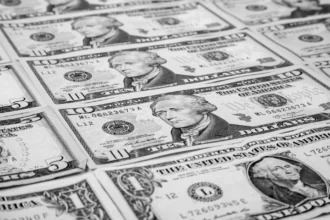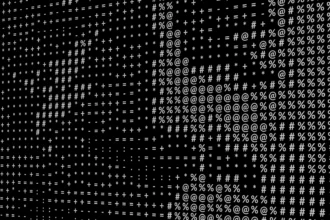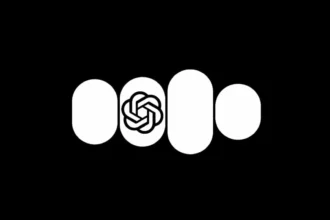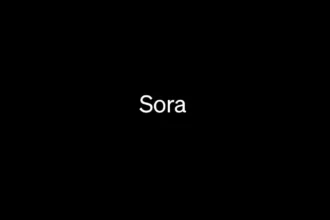Table of Contents
ToggleUK Judge Issues Warning on AI Misuse in Courts
A judge at the High Court of England and Wales warns legal professionals that misuse of AI in courts, such as submitting fabricated cases generated by artificial intelligence, may lead to criminal charges. This alert aims to safeguard the integrity of the justice system.
Concerns About AI Usage by Lawyers
The warning follows instances where lawyers reportedly used AI tools to prepare written arguments presented in court. The senior judge expressed strong disapproval of this practice, emphasizing that reliance on AI without proper verification can undermine legal proceedings.
Impact on Justice and Public Confidence
Victoria Sharp, president of the King’s Bench Division, highlighted serious risks associated with AI misuse. She noted that such actions threaten the administration of justice and erode public trust in the legal system. Maintaining confidence requires strict adherence to ethical standards when incorporating AI tools.
Summary of Key Points
- Legal professionals risk criminal charges if they submit fabricated AI-generated cases.
- Use of AI tools by lawyers for court documents must be carefully managed and verified.
- Misuse of AI jeopardizes the justice system and public confidence.
UK Judge Sounds Alarm on AI Misuse in Courts: A Wake-Up Call for Legal Professionals
Are lawyers really submitting AI-generated fake cases in UK courts? Yes, and a senior High Court judge is NOT happy about it. The President of the King’s Bench Division delivered a stark warning last Friday, shaking the legal world with her clear message: misuse of AI in courts could land lawyers in hot water—criminal charges, to be exact.
Let’s unpack what this means and why it matters to anyone interested in justice and the future of law.
AI in the Legal World: Boon or Bane?
Artificial intelligence is everywhere these days. Lawyers use AI tools to draft documents, research laws, and even generate arguments. It can save time and improve accuracy—when used responsibly.
However, the recent cases in the UK show a darker side. Some lawyers allegedly submitted written arguments created with AI that weren’t properly checked. Worse? Some cases were entirely fictitious, conjured up by AI rather than based on real facts or law.
Victoria Sharp, the senior judge at the High Court of England and Wales, slammed this misuse. In two separate cases last month, she saw firsthand how AI-generated content appeared in court without verification.
She said, “There are serious implications for the administration of justice and public confidence in the justice system if artificial intelligence is misused.”
Why Misuse of AI in Courts Is a Big Deal
Imagine going to court and finding out the evidence presented was partly AI fiction. How would you feel? Would you trust the outcome?
Wrong use of AI threatens the very foundation of the justice system—fairness and truth. Legal decisions affect people’s lives, freedoms, and money. Introducing AI-generated fiction into that mix risks miscarriages of justice.
- Justice System Trust: Public confidence can plummet when people suspect courts rely on false information.
- Legal Integrity: Lawyers swearing by AI-generated facts undermine their professionalism and ethical duties.
- Criminal Charges for Lawyers: Sharp warns that submitting bogus AI content could lead to criminal consequences.
That’s not just a slap on the wrist. It’s a full-on red flag for the legal community.
How the UK Judge’s Warning Should Change Legal Practice
Legal professionals take note: AI is a tool, not a crutch nor a magic wand. The judge’s judgment delivers a serious message—it’s up to lawyers to ensure their submissions stand up to scrutiny, AI or not.
Lawyers should:
- Verify AI-generated content rigorously. Don’t just copy-paste.
- Disclose AI use transparently. Courts deserve honesty about your sources.
- Understand the technology. Know AI’s limits and potential for error or fabrication.
- Maintain professional ethics. Always prioritize truth and justice over convenience.
Human judgement remains critical when working with AI tools. Keep that front and center.
Lessons and Implications Beyond the Courtroom
This warning isn’t just about lawyers and judges. It reflects a broader challenge as AI grows in power and accessibility. We must all ask:
How can society balance AI innovation with accountability, especially in high-stakes fields like justice?
Legal systems worldwide are watching this UK precedent closely. The message is clear: misuse of AI in courtrooms will face serious consequences. This should prompt global discussion on AI regulations and ethical standards in law.
Moreover, law students and tech developers should take heed. The future of AI in law requires trusted collaboration, not reckless shortcuts.
Wrapping Up: The Road Ahead for AI and Justice
To recap, the UK’s High Court judge Victoria Sharp sounds a loud alarm on AI misuse in courts. She demands integrity and warns of criminal charges for lawyers submitting AI-generated fake cases. This spotlight on misuse highlights the risks AI carries for justice administration and public confidence.
At the heart of this debate is a reminder: AI is a tool designed to assist, not to replace human oversight and ethics. Courts must adapt but never compromise on truth. Legal professionals have a duty to wield AI responsibly—because behind every case is a real person depending on fairness and honesty.
So, will lawyers embrace AI wisely, or will shortcuts tempt a new wave of courtroom chaos? Only time will tell. In the meantime, this UK judge’s firm stance sets a powerful example. AI in courts needs rules, respect, and rigorous checks—no exceptions.
After all, justice is not a game for AI-generated gambits.
Can lawyers face criminal charges for submitting AI-generated cases in court?
Yes. The High Court warned that lawyers submitting fictitious cases made by AI could face criminal charges.
What happened when lawyers used AI tools to prepare court arguments?
A senior judge reprimanded lawyers in two cases for using AI tools in their written submissions.
How does AI misuse affect the justice system?
Misusing AI undermines the administration of justice and damages public confidence in the legal system.
Who issued the warning about AI misuse in courts?
Victoria Sharp, president of the King’s Bench Division at the High Court of England and Wales, delivered the warning.





